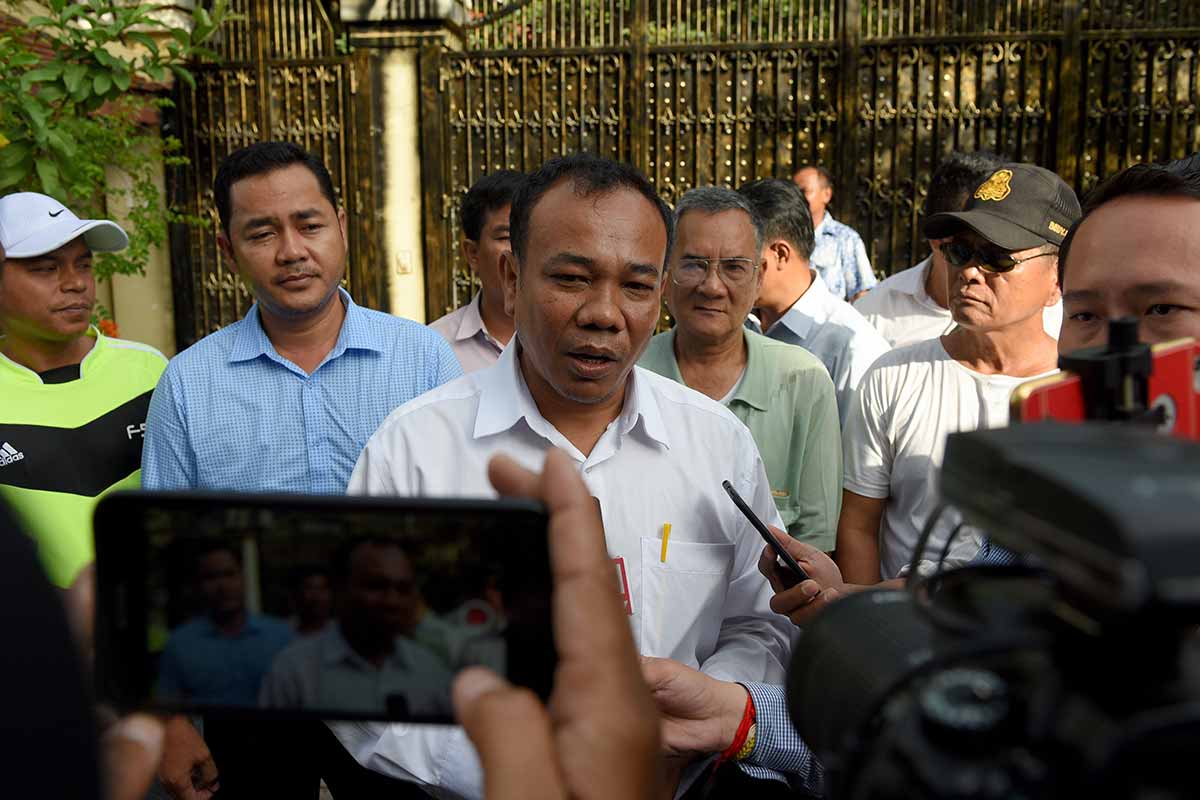Cambodia's opposition leader Kem Sokha was released from jail early Monday a year after he was detained on treason charges, as the country's strongman ruler loosens his grip on opponents after sweeping one-sided elections.
Over a 33-year rule, the wily Hun Sen has tightened and relaxed his chokehold on opponents at will, most recently launching a broad crackdown in the run-up to July elections that gifted his ruling party an uncontested victory.
As part of that action, Kem Sokha, the head of the only serious opposition the Cambodia National Rescue Party (CNRP), was arrested on 3 September, 2017, and accused of treason.
The move took out one of the kingdom's few outspoken political figures who can still pull a crowd.
The case against the 65-year-old was widely seen as politically motivated. Just two months later the CNRP was dissolved by a court.
That paved the way for the ruling Cambodia People's Party to win all 125 parliamentary seats in the election, turning the country into a one-party state and extending Hun Sen's stay in office.
Dozens of supporters and media gathered outside Kem Sokha's house in Phnom Penh, where he returned in the early hours of Monday after a year in a remote border prison.
He was bailed from pre-trial detention on condition that he does not flee "proceedings" against him, a court in Cambodia's capital said in a statement.
The opposition figure still faces up to 30 years if convicted of treason.
His bail conditions state he must be "confined to a block radius of his residence," his daughter Monovithya Kem told the international media.
A court-issued warrant showed a small triangle in downtown Phnom Penh that Sokha is not permitted to leave, and also barred the opposition leader from meeting with CNRP members and anyone else related to the case.
He also is not permitted to meet with any foreigners or host any rallies or political activities, the document said.
But the end to his prison ordeal - for now - was welcomed by supporters whose political views were muffled during the election period by Hun Sen's repression.
"We hope that from now Cambodians will have freedom to talk on all topics," supporter Sun Socheat said.
Closer to China
The CNRP made major gains during a 2013 election, propelled by significant dissatisfaction among Cambodia's large youth population, in a surprise showing that rattled Hun Sen.
But the party was then picked apart by Hun Sen, with many of its leading figures fleeing abroad. Kem Sokha's predecessor Sam Rainsy lives in self-exile in Paris to escape a slew of charges that he says are politically motivated.
Western countries - who have long been major aid donors to Cambodia - criticised the most recent election, refusing to send monitors once the opposition was effectively neutered.
The United States (US) government has said the election was neither free nor fair and it "failed to represent the will of the Cambodian people".
Last week, as he was sworn in for another term, Hun Sen insisted that the poll was "free, just, fair and transparent".
Since the polls Hun Sen has begun to release critics from jail, a common easing of his grip on power that has followed election wins throughout his time in office.
14 Cambodia opposition supporters jailed for insurrection were released last month.
Faced with criticism over his rights record, Hun Sen has increasingly moved Cambodia closer to China in recent years with Beijing becoming both, a top donor and international investor.
Compared to western nations, Beijing's largesse comes with far fewer strings attached in terms of pushing political freedoms and reform.
A former Khmer Rouge commander, Hun Sen has been seen by some as a stabilising force who helped bring roads and mega-malls to a country ravaged by decades of brutal civil war.
But critics say his long rule has been authoritarian and done little to halt rampant corruption while enriching a small clique of families, politicians and business figures who are close to the leader. - AFP
